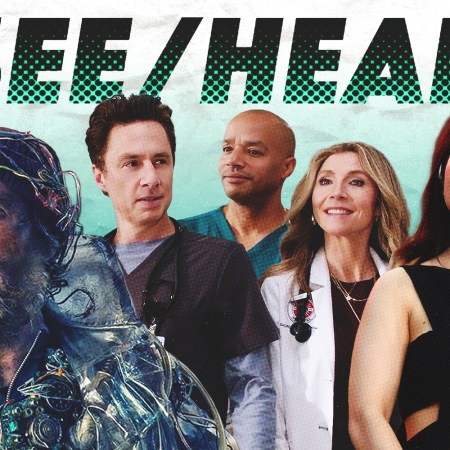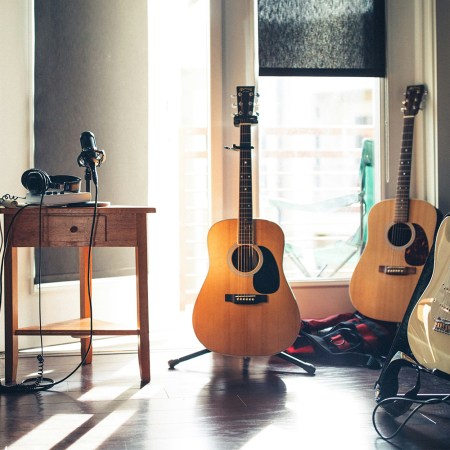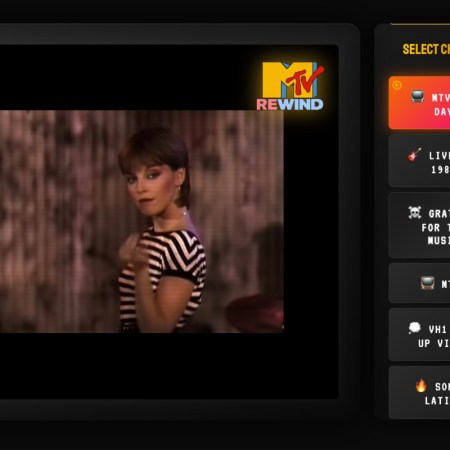It’s fitting that Lucy Dacus’s third album, the excellent Home Video, arrives the same week that Joni Mitchell celebrates the 50th anniversary of her masterpiece, Blue. Mitchell recently recalled the early criticism she received in response to her classic record, with detractors claiming it was too personal and vulnerable, that she was “exposing too much of herself.” Dacus’s latest is further proof of why that’s absolute nonsense; the idea that an album can be hindered by drawing too much from one’s own life is dated (and frankly, a little sexist — did Bob Dylan face the same scrutiny Mitchell did when he wrote about his breakups?), and Home Video is a reminder that digging into the past and tapping into those emotional wells often results in career-best work.
As you can probably surmise from the title, Home Video is a nostalgic look back at Dacus’s adolescence, full of fond memories as well as the kind of Kodak Carousel-style pain from old wounds that Don Draper famously described on Mad Men. Dacus went back and revisited the journals she kept during that period of her life while writing the album, and much of the record is highly specific to her experiences growing up queer and devoutly Christian (“Triple Dog Dare,” for example, details a close friendship that is nearly sabotaged when her friend’s religious mother — who Dacus has said “saw what was going on in a way that I didn’t” — bans her daughter from spending time with her). But, of course, you don’t need to be a member of the LGBTQ community or someone who grew up in a strict church-going household to relate.
That’s the beauty of confessional songwriting, especially when it’s done as skillfully as Dacus does it on Home Video. Our circumstances may differ, but everyone can relate the underlying emotions. You don’t have to have attended the vacation Bible school described in “VBS” to empathize with the youthful rebellion of the Slayer-loving boyfriend she met there or laugh at her hindsight that “Your poetry was so bad/It took a lot not to laugh.” Anyone who’s ever been a teenager can relate to the awkwardness and intensity she chronicles as she looks back on that time of life when you’re just figuring out who you are and what you believe — and those feelings are amplified and highlighted by her evocative lyricism. (“You gave me your hands because you didn’t know what to do with them, and I showed you the way even though I’d never been,” she sings on “First Time.”)
Much of Home Video is centered around identity and the ways we build and evolve ours as we get older. “Brando” focuses on a toxic friendship with a guy whose entire personality is based on his tastes and the way he projects them onto others, spitting out quotes from Casablanca and passing them off as his own witticisms. (“You knew you were uncool, but you thought you could fool me,” Dacus recalls.) The campfire sing-along “Going Going Gone” — which features backing vocals from her boygenius bandmates Julien Baker and Phoebe Bridgers — examines the way a man who spends a lot of time “grabbing asses, spilling beers” must reckon with that behavior after becoming a father to a daughter. Opening track “Hot and Heavy” is a meditation on the painful nostalgia she presents us with on the rest of the record, a sort of thesis statement about how one can never truly go home again because it makes us “hot in the face” and full of “heavy memories,” but it also serves as a reminder that even though those memories we have of certain people remain fixed, they’re just as capable of change as we are. (“You used to be so sweet,” she sings. “Now you’re a firecracker in a crowded street.”)
Elsewhere, she tackles childhood trauma and the ways in which the pain of a loved one can become our own too. On the standout, sparsely arranged “Thumbs,” she tags along with a close friend as the girl reunites with her abusive father after years apart. Dacus recalls the event in haunting detail, remembering the way they walked a mile in the wrong direction on their way home because he was watching them leave and admitting she’d happily murder the guy for what he put her friend through. It’s a devastating track, one of the finest examples of Dacus’s lyrical prowess; “I love your eyes, and he has ’em, or you have his ’cause he was first,” she sings, marveling at the way a lovely trait can have such sinister origins. “I imagine my thumbs on the irises, pressing in until they burst.” Elsewhere, her wordplay shines as she tries to reassure her friend that sharing DNA with a monster doesn’t mean she’s destined to become one herself: “You two are connected by a pure coincidence, bound to him by blood, but baby, it’s all relative.”
“Please Stay” also deals with the experience of watching someone you care about suffer; this time, it’s a friend who’s struggling with suicidal ideation. On the emotional track (which also features Baker and Bridgers on the chorus), a helpless Dacus implores her friend to do whatever she needs to do as long as it involves going on living: “Quit your job, cut your hair, get a dog, change your name, change your mind, change your ways, give them time, go back to school, go back to sleep, tell the secret you can’t keep, begin, be done, break a vow, make a new one, call me if you need a friend, or never talk to me again, but please stay,” she pleads.
Again, these tracks are written about specific people and events, but they’re ultimately about empathy. The idea that they’re any less moving or impressive because they’re rooted in personal history is completely asinine. After all, isn’t that why we listen to music to begin with — to feel that magical connection to a total stranger as we realize that their fears, desires and most closely guarded feelings are, in fact, the same as our own? We put on a sad song when we’re sad and feel less alone. The personal details don’t detract from that; they make it easier to relate because they remind us that for all our differences, there are some things that are just inherent to being human. Great art, like Home Video or Blue, is rooted in that understanding, and after more than a year of pandemic-related isolation, we need it more than ever.
This article appeared in an InsideHook newsletter. Sign up for free to get more on travel, wellness, style, drinking, and culture.

























